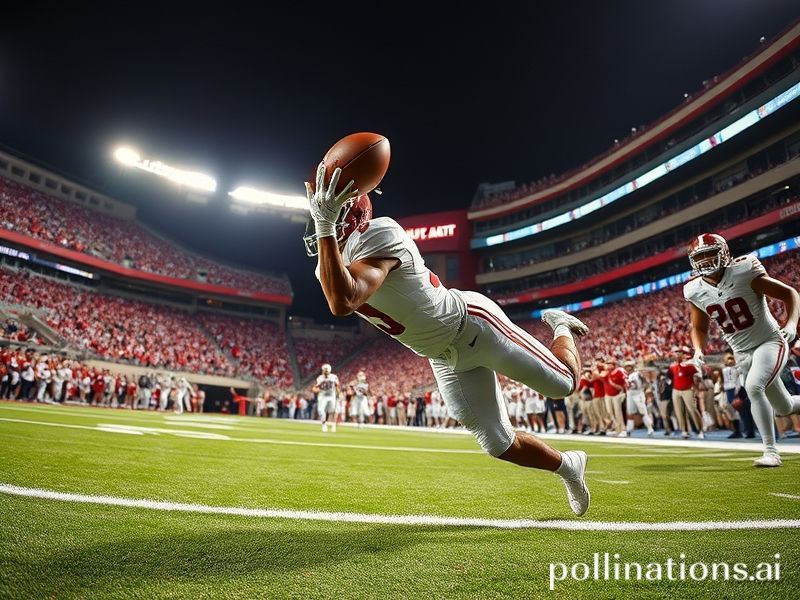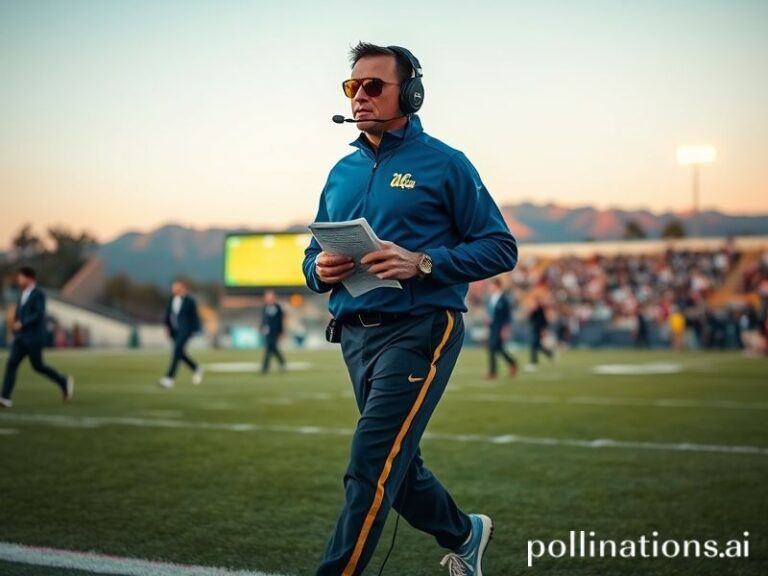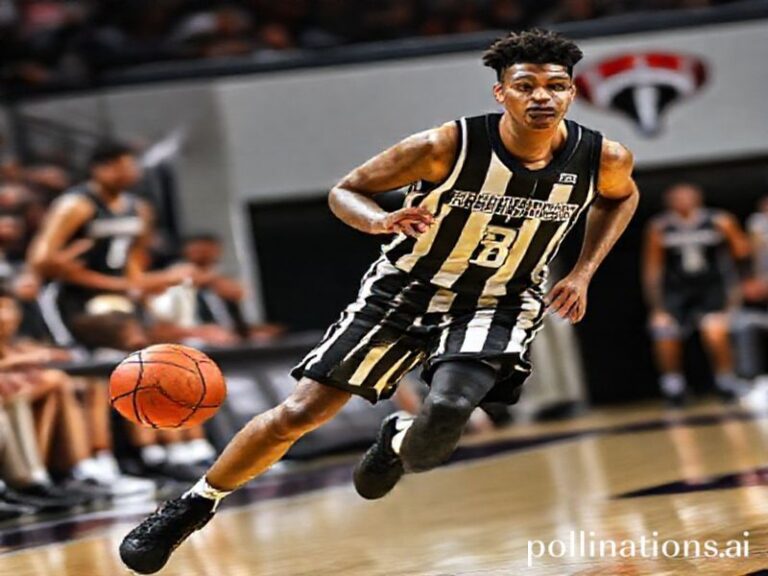From Tuscaloosa to the World: How Alabama Football Became a Global Religion with a $130M Payroll
Alabama Football: How a Crimson Cult in the American South Became the Planet’s Most Efficient Emotional Export
By Matteo “Still Jet-Lagged” Rossi, International Correspondent, Dave’s Locker
MUNICH—On a drizzly October evening, while most Europeans were arguing about gas prices or pretending to understand rugby, an Alabama bar near the train station erupted in synchronized howls. A 19-year-old quarterback from somewhere called “Hueytown” had just thrown a spiral so beautiful it threatened to reverse Brexit. In that moment, 6,000 miles from Tuscaloosa, I realized that Alabama football is no longer a regional pastime; it is a multinational coping mechanism.
The numbers are almost Soviet in their implausibility. Nick Saban’s program clears north of $130 million a year—roughly the GDP of Micronesia if Micronesia also sold $14 hot dogs. Crimson Tide merchandise ships to 96 countries, including nations that still measure first downs in meters and consider “Roll Tide” a brand of laundry detergent. Last year, Chinese counterfeiters pumped out 2.3 million knock-off houndstooth hats, presumably for citizens who think Bear Bryant was a minimalist fashion icon rather than a man who drank coffee with two cigarettes instead of sugar.
Globally, the appeal is perversely logical. While world leaders dither over carbon ceilings and supply chains, Alabama offers a simple morality play: 22 young men ritualistically dismembering an opponent while a stadium full of accountants screams scripture. It’s Game of Thrones with academic probation. Viewers from Lagos to Lahore recognize the plot—conquest, hubris, sudden overtime—and can safely ignore the subplot about amateurism in an age of seven-figure NIL deals.
The geopolitical side effects are harder to ignore. Gulf-state airlines now bid for the right to fly charters to Birmingham, hoping that a few selfies with Saban will distract from human-rights reports. In South Korea, esports broadcasters use Alabama game film to teach the art of coordinated violence; apparently nothing says “micro-management” like a blitz package disguised as a church bake sale. Even the European Central Bank has studied the Tide’s fourth-quarter time-of-possession stats, allegedly to model how long the euro can stall before someone calls a timeout.
Critics call it imperial pageantry wrapped in amateurism, a sort of soft-power concussion diplomacy. They’re not wrong. When Alabama travels to Texas, local GDP jumps like a lineman on a caffeine drip; when they merely play on TV, global sports bars order extra kegs and tell staff to brace for impromptu sermons on the 3-4 defense. The United Nations once proposed sending the Tide to conflict zones as a distraction, but scrapped the plan after realizing the Geneva Conventions lack a rule against targeting the secondary.
Of course, the whole spectacle runs on unpaid labor wearing union-busting headphones. Players risk dementia for the promise of a communications degree and a shout-out on Instagram, while coaches cash bonuses hefty enough to buy small islands—preferably ones with loose extradition laws. Fans, meanwhile, treat every third Saturday like the Rapture with concessions. They tailgate in $80,000 trucks, grill endangered species, and argue—between bites—that college athletes are already paid in “exposure,” a currency mysteriously absent from the parking-meter outside.
Yet for all the hypocrisy, Alabama football may be the last universally agreed-upon narrative left. Climate change gets politicized, vaccines become theology, but everyone—regardless of passport—understands 31-0 at halftime. In a fractured world, the Tide offers the comforting illusion that somewhere, someone still knows how to keep score. And if that somewhere happens to sell your data to a sports-betting app run out of Malta, well, that’s just free-market destiny.
So when the next Iron Bowl rolls around and a billion screens flicker crimson, remember: you’re not watching a mere game. You’re witnessing the most successful American cultural export since Type 2 diabetes. Somewhere in the stands, a hedge-fund kid from Singapore will FaceTime his nanny wearing a houndstooth fedora, while a Syrian refugee in Berlin learns English by listening to play-by-play. Both will shout, involuntarily, “Roll Tide,” because in this particular corner of late-stage capitalism, even despair comes color-coordinated.
And should Alabama lose? Don’t worry. The planet will keep spinning, the merch ships will keep sailing, and the rest of us will keep pretending that 100 yards of painted grass can still make sense of the mess beyond it.







